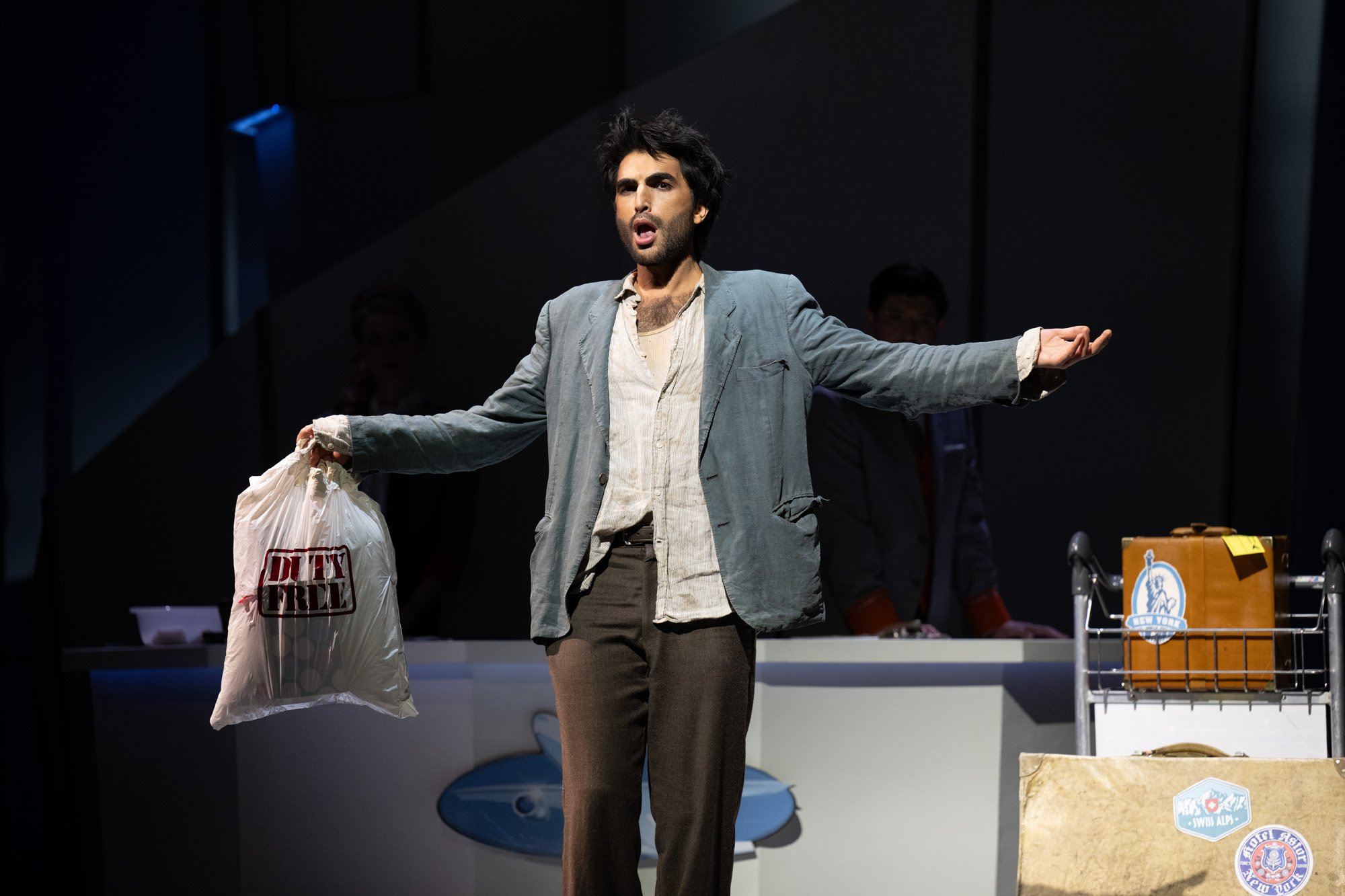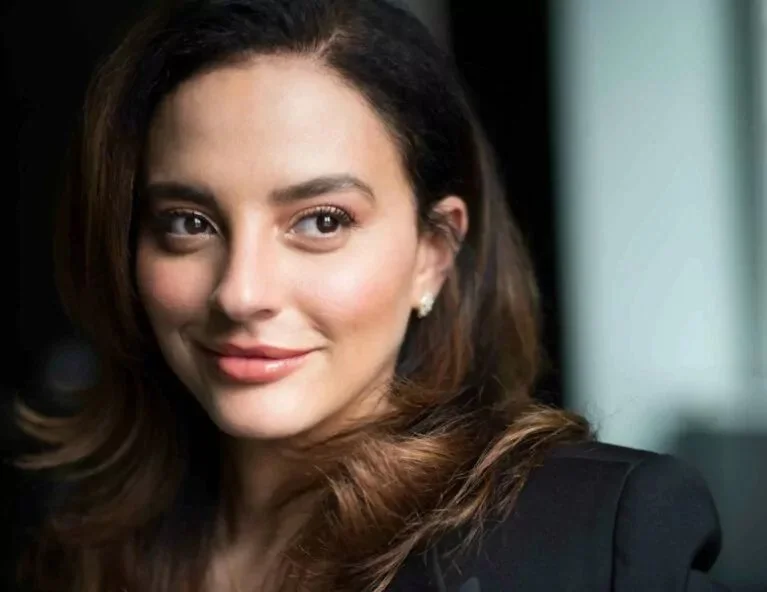Music review: Artful staging heightens Flight’s sense of airport limbo
Vancouver Opera production balances heart and absurd humour, with a third act that gets full liftoff
Vancouver Opera’s Flight. Photo by David Cooper Photography
Vancouver Opera presents Flight February 13 and 16 at the Queen Elizabeth Theatre
VANCOUVER THEATRE ICONS MORRIS PANYCH and Ken MacDonald take Jonathan Dove’s 1998 opera Flight to surreal new heights, creating an experience that is far from a usual night out at the opera.
In the Vancouver Opera production on now at the Queen Elizabeth Theatre, the director and set designer give the story of airport limbo a wonderfully wonky suspended-in-time quality, care of retro-TWA-terminal-meets-The-Jetsons sets and cartoon-’60s outfits that work perfectly with the swirling, stylized score. Orchestral chimes mimic airport alerts, a sky-high-soprano airport controller makes echoey announcements from above, rumbling percussion conjures thunder, and chaotic horns summon everything from wind storms to sexual climax.
That strange, otherworldly quality mixes with an absurdist humour that seems custom-made for the creative team behind shows like The Overcoat and The Girl in the Goldfish Bowl. And yet Flight is grounded in a painful refugee story that feels ripped from today’s headlines.
The opera was inspired by a true story of an Iranian refugee stranded at Paris's Charles de Gaulle Airport for 18 long years, but it jumps off wildly from that idea to build a larger, darkly comic fable about connection and “being stuck”. The Refugee roams the airport, bumping into a couple heading off on holiday to re-spark their relationship; the heavily pregnant wife of a diplomat relocating to Minsk; a middle-aged divorcée waiting for her much-younger new fiancé; and a hot-and-bothered pair of flight attendants. Soon they’re stranded overnight by a storm—becoming, as The Refugee points out, trapped “just like me”.
The first two acts build to an increasingly absurd limbo—and like an extended flight delay, little happens action-wise. Before intermission, it feels like The Refugee’s story is getting shortchanged next to that of his globetrotting fellow passengers. Full disclosure: a few opera traditionalists left at intermission. That turned out to be their loss. Flight gets full liftoff in the third act, tapping all its power, both comedic as the visual gags reach their absurd heights, and heartwrenching as The Refugee’s back story is finally revealed. In the end, the Vancouver Opera audience gave it a standing O.
Cameron Shahbazi. Photo by David Cooper Photography
It takes versatile talent to pull this off and the all-Canadian cast does not disappoint. Singing with a haunting, clarion countertenor that establishes him immediately as a stranger, Cameron Shahbazi’s Refugee centres the production as a deeply empathetic character who holds all his possessions in a plastic Duty Free shopping bag. He survives by asking passengers for money and food, only to be brushed off, but he also has a comforting, soothsayer quality, reassuring the angst-ridden bunch that everything is going to turn out okay. In the third act, he comes into full colours, revealing the profound trauma that brought him here.
As the wife Tina, Andriana Chuchman lets fly in a hilarious fit that comically redefines the “rage aria”, while as her hubby Bill, Asitha Tennekoon has some great risquée third-act slapstick with a flight attendant (Clarence Frazer). As the pregnant “Minskwoman”, Stephanie Tritchew has a beautiful solo about coming into her own agency with a new baby. And as the godlike Controller, soprano Caitlin Wood effectively navigates the dizzyingly stratospheric vocal writing.
MacDonald’s set is simply ingenious with its winglike architecture and two compass-star-like globe chandeliers flanking the action. The central, spiralling control tower works together with video projections to conjure a jaw-dropping visual trick in the final moments. Director Panych has paid attention to every fun detail in the staging, with towering trolleys of suitcases ever-moving through the action; flight attendants sometimes gesturing with the same stiff movements of a safety demo; and aircraft marshalls signalling with red-glowing light guns.
Conductor Leslie Dala energizes the shifting, frenetic moods, whether it’s a rhythmic game of checking for tickets and passports or building the rumble of a plane about to take off. The contemporary score has moments of dissonant beauty, but few songs stand out on their own; instead, the draw is the inventive ways that Dove conjures all the noises of weather, flight, and airports through his orchestral soundscape.
With a more realistic, less stylized approach, Flight might crash land. But this rendition is strangely transfixing, a surreal journey that never really escapes eternal flight delay—reconciling, in its own way, with an existential limbo that seems to speak exquisitely to the world today. ![]()

























